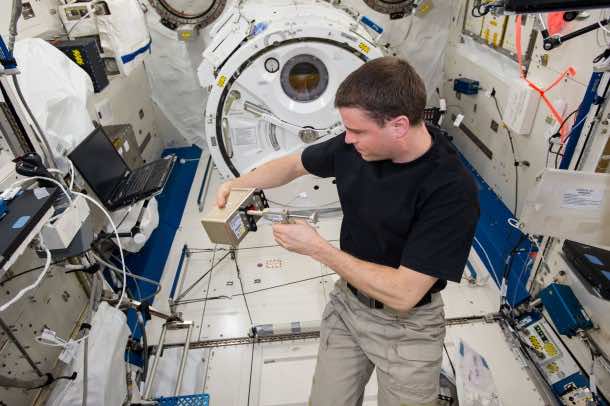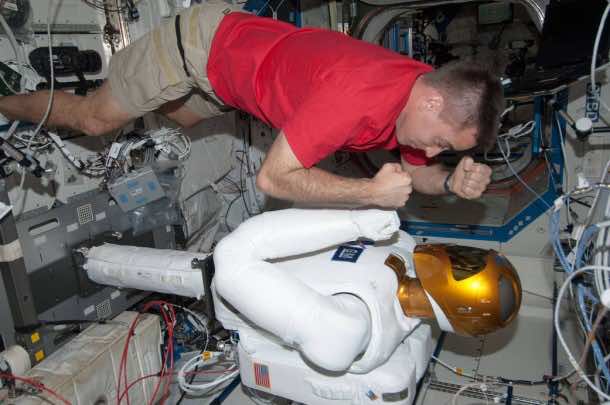Did you know that NASA burns Astronauts’ urine? Yes, we are not kidding. Recently, Destin, the host of ‘Smarter Every Day’ paid a visit to Johnson Space Center (JSC) in Houston to understand why the pee of astronauts is considered such an important resource for scientists and why is it burned.
Humans have evolved on a planet that is subjected to a constant force of gravity whereas the astronauts have to experience the loss of gravity for longer spans of time when assigned to the International Space Station. This weightlessness causes certain changes in the physiology of astronauts.
The most crucial and obvious change is the reduction in muscle mass since floating around doesn’t subject your muscles to strain and thus, they suffer atrophy due to lack of use. This same principle is applicable on a human’s bones. Bones’ strength and density increases when we lift weights, run or subject our skeleton to any kind of load. Now bones are constantly remodeling themselves by breaking down and releasing minerals into the blood stream while new minerals become part of the bones. This process takes place in a constant balance on Earth, whereas in space the amount of minerals lost is higher than the amount of minerals replenished. This is imbalance is very significant for astronauts.
As per scientists at JSC, astronauts can lose up to 2.5% of their bone density every month they are in space and this implies that they would lose about half of bone density in 30 months. Why is this a problem? Because when they return to Earth, they will be subjected to the normal gravity again and the bones won’t be strong enough to take it. A better understanding is also required since exploring Mars means a roundtrip journey of three years is required – think of the damages that bones would sustain during such a long time period.
Many of the minerals are excreted via astronauts’ urine and this renders it as an important and crucial resource for this study. The urine is burnt and the color of the flame is analyzed thus allowing scientists to tell a lot about what minerals are present in the urine.
The aim of this whole process is to gain a better understanding of this mineral excretion process and to come up with ways of tackling the mineral loss. One approach has been to come up with innovative exercising methods that allow the astronauts to subject their bodies to required strain in space by making use of an ingenious vacuum system.


